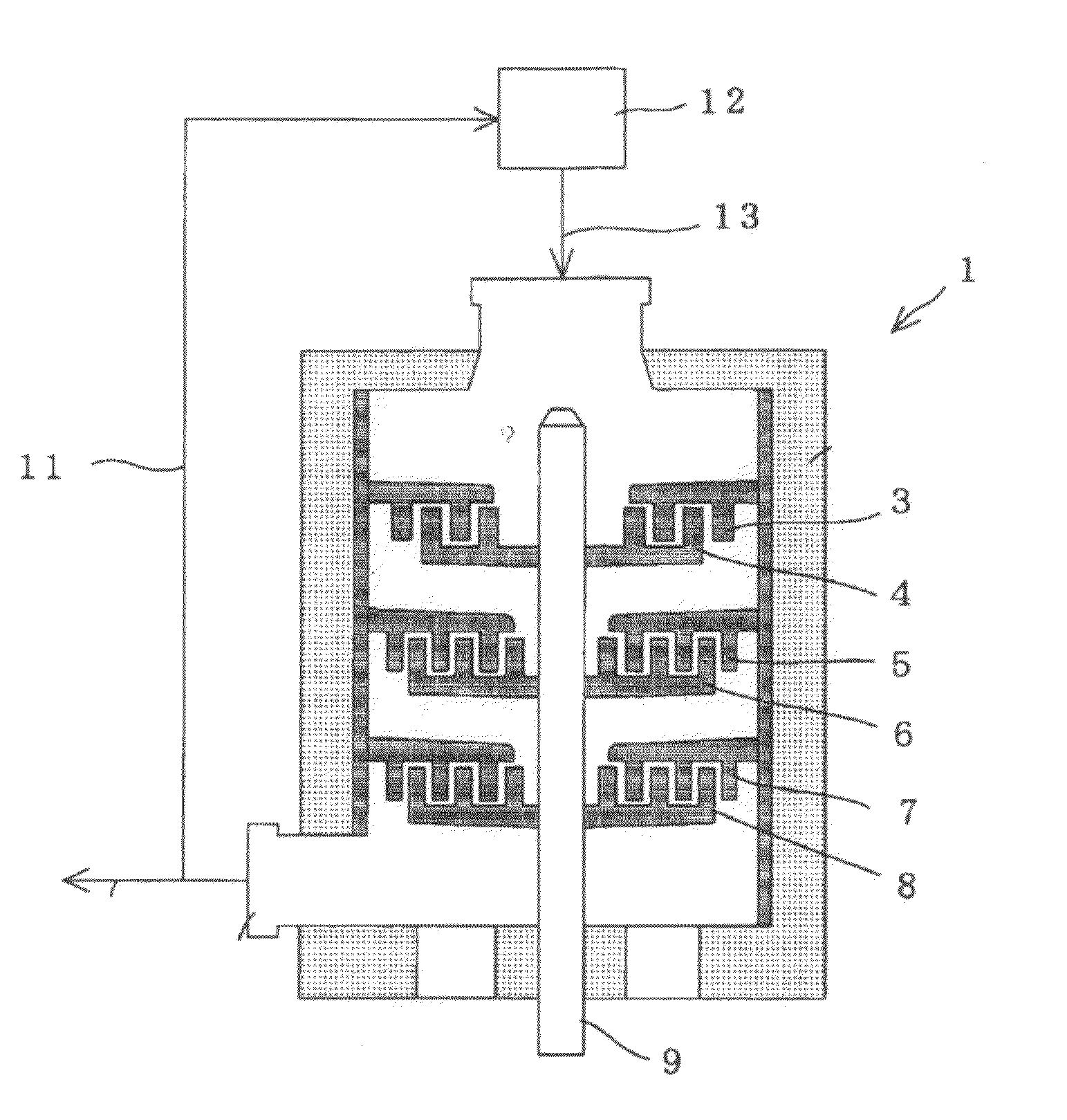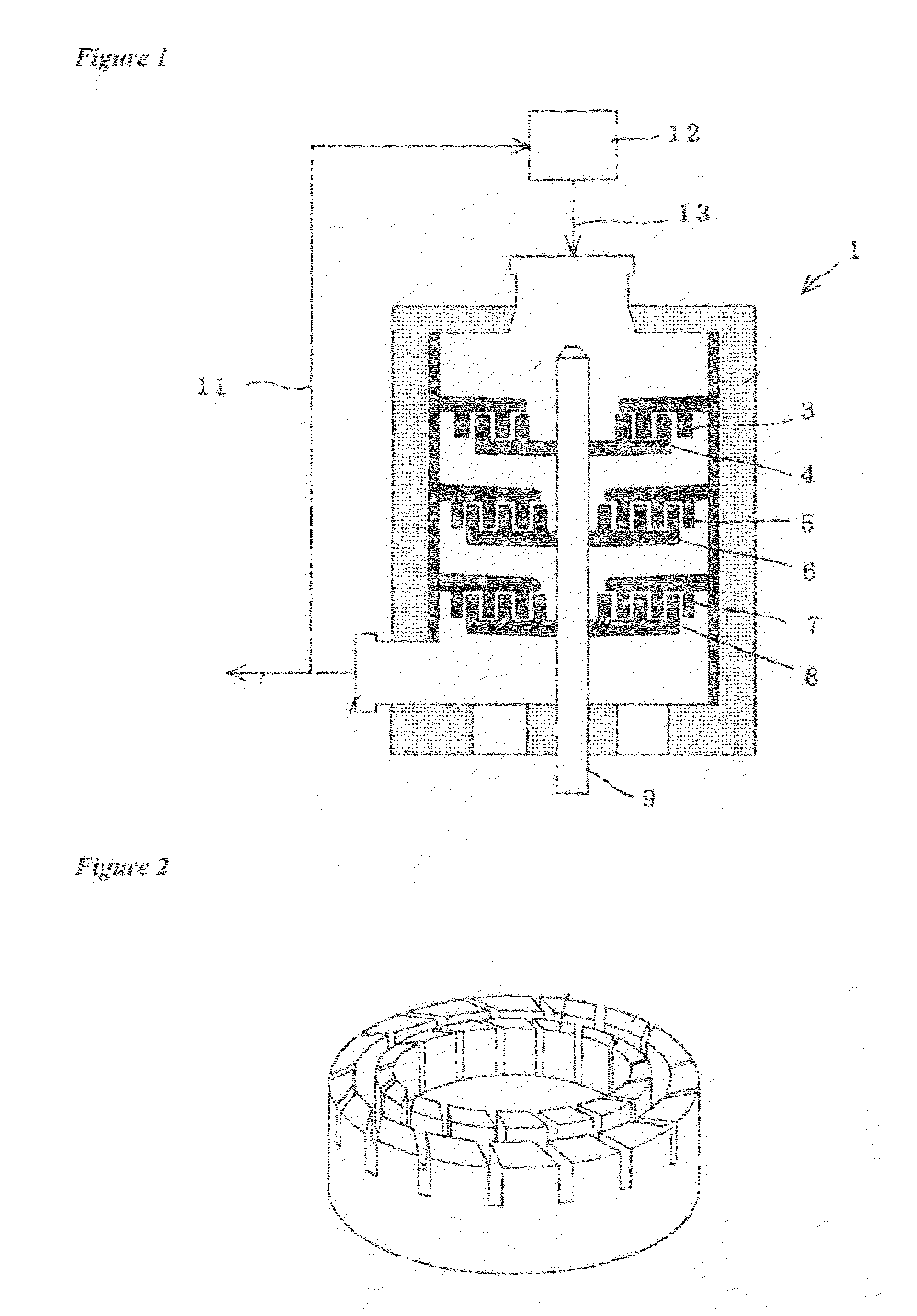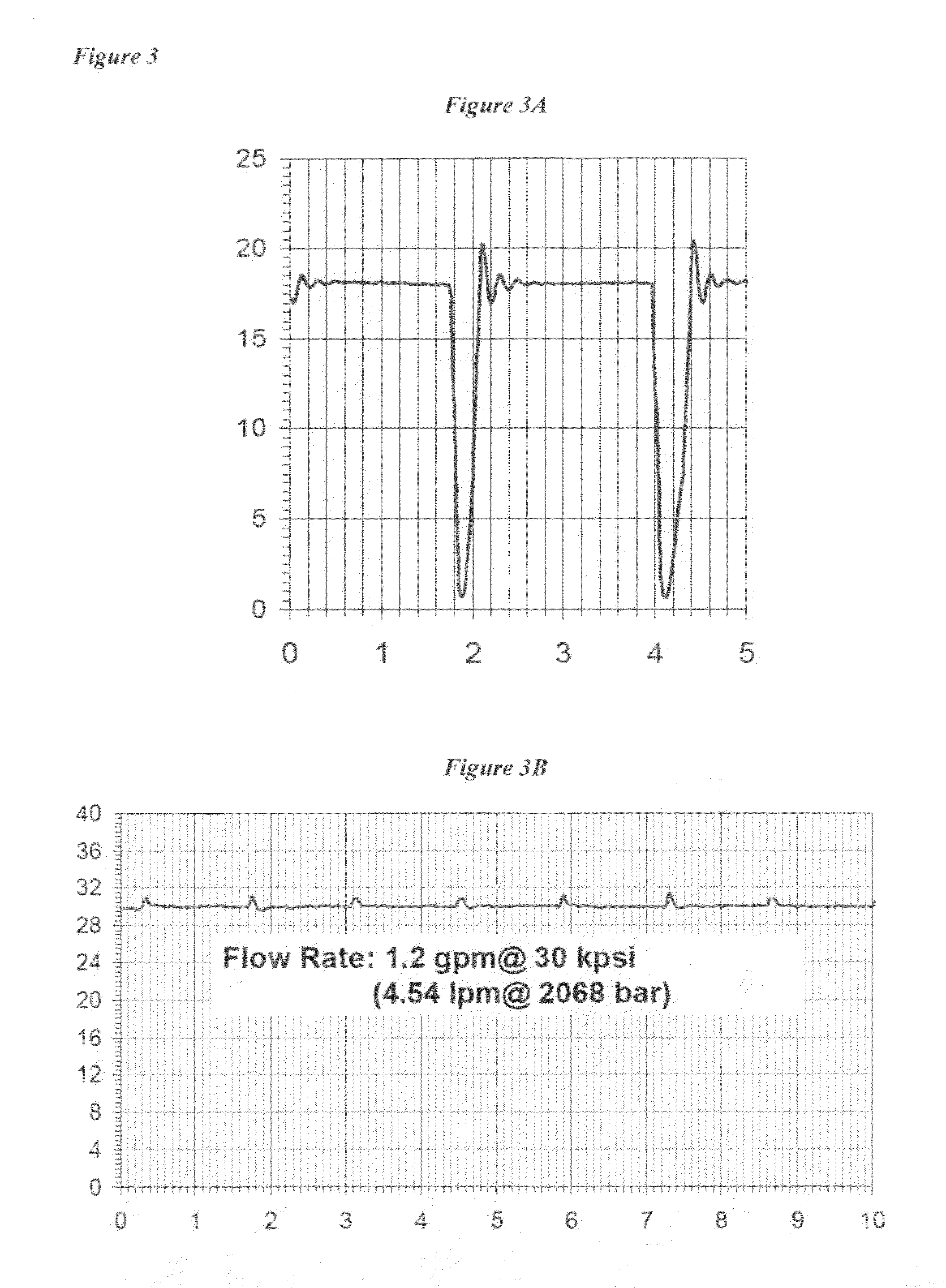Methods for producing vaccine adjuvants
a technology of oilinwater emulsion and adjuvants, which is applied in the field of manufacturing oilinwater emulsion adjuvants, can solve problems such as emulsion degradation during storag
- Summary
- Abstract
- Description
- Claims
- Application Information
AI Technical Summary
Benefits of technology
Problems solved by technology
Method used
Image
Examples
Embodiment Construction
[0189]A first emulsion comprising squalene, polysorbate 80, sorbitan trioleate and sodium citrate buffer was prepared by homogenization. The first emulsion was homogenized until it had an average oil droplet size of 1200 nm or less and a number of oil droplets having a size >1.2 μm of 5×109 / ml or less.
[0190]The first emulsion was then subject to microfluidization to form a second emulsion. The microfluidization device comprised two synchronous intensifier pumps providing a substantially constant pressure of approximately 700 bar (i.e. approximately 10000 psi). The emulsion was passed through the microfluidization device five times. The emulsion was maintained at a temperature of 40±5° C. during microfluidization through the use of a cooling mechanism.
[0191]Four test runs were carried out. In the first pair of test runs a single channel auxiliary processing module (APM) was positioned upstream of an 8 channel, Z-type interaction chamber (IXC), as recommended by the manufacturer, and ...
PUM
| Property | Measurement | Unit |
|---|---|---|
| oil droplet size | aaaaa | aaaaa |
| size | aaaaa | aaaaa |
| oil droplet size | aaaaa | aaaaa |
Abstract
Description
Claims
Application Information
 Login to View More
Login to View More - R&D
- Intellectual Property
- Life Sciences
- Materials
- Tech Scout
- Unparalleled Data Quality
- Higher Quality Content
- 60% Fewer Hallucinations
Browse by: Latest US Patents, China's latest patents, Technical Efficacy Thesaurus, Application Domain, Technology Topic, Popular Technical Reports.
© 2025 PatSnap. All rights reserved.Legal|Privacy policy|Modern Slavery Act Transparency Statement|Sitemap|About US| Contact US: help@patsnap.com



